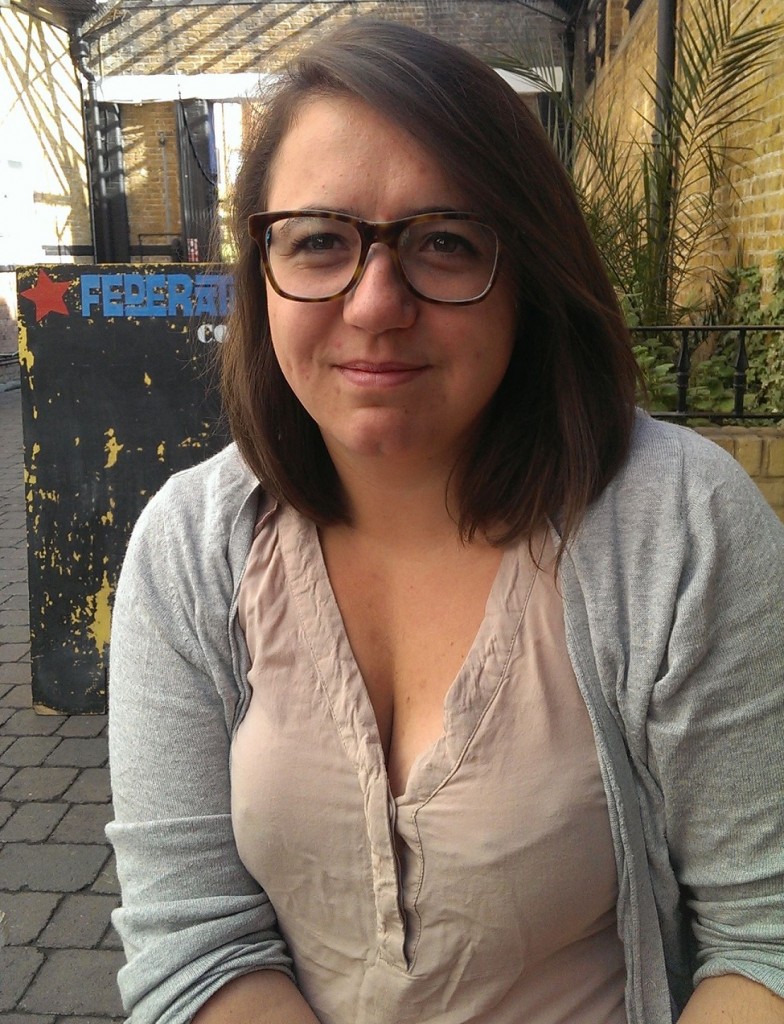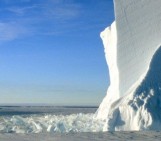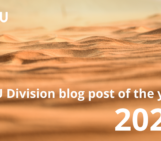This week in GeoTalk, we’re talking to Flo Bullough – Policy Assistant at the Geological Society who writes about both climate and policy at Four Degrees…
Hi Flo, why don’t you tell us a bit about yourself and how you got into science communication?
I would say that science communication is something I have always done in my academic studies without having labelled it as such. I deliberately chose research topics that had a wider impact than the core research alone and I was always interested in disseminating my work more widely than the department or my supervisor. My work has always involved environmental and development issues (in water contamination and geochemistry) because I found that having a human angle or a real world application was an interesting driver. Now, in addition to the blog, in my role as a Policy Assistant I get to write documents for parliamentarians and the wider public disseminating geological information in an accessible way. Effective communication of science is a really rewarding part of the job, and when you have the potential to impact on policy; it’s a great incentive to get it right.
You recently started a series called “what’s geology got to do with it?” to show geoscience is relevant even when you might not expect it to be. How is geology relevant to society?
For me, I think the question is almost how is it not relevant? Geology and its many sub-disciplines influence either directly or indirectly almost everything we use in our daily lives or that we see in the environment around us. In a very basic sense, geology relates to fundamental natural resources such as rocks, metals, water and fossil fuels. These sit at the base of the manufacturing industry and are important in terms of utilities, public services and just about anything you can think of. Their use, scarcity and extraction is also linked to many social, cultural and political situations which have direct links with the social sciences. It’s no secret that resource scarcity and climate change are going to have a threat multiplier effect on many of the biggest political & cultural issues we face around the world. I’m an advocate for approaching things in an interdisciplinary way and the more we highlight the interdependence and connectedness of different issues, the more widely these links will be understood.
In addition to blogging, you work full time as a Policy Assistant at the Geological Society of London, how do you keep on top of the latest research and policy developments?
In the age of social media and widespread information generation and distribution, ‘staying on top’ of research and policy in its entirety is virtually impossible. At the Society, we are fortunate to have numerous and willing fellows who have expertise in an enormous variety of areas and so their input on current issues and responses we make is invaluable. We also have our own publishing house and an extensive events schedule that helps me keep on top of new research. So between those, the science media and social media I try to keep abreast of as much as possible.
Position statements are incredibly useful references for policymakers and stakeholder organisations. What goes into writing one?
Position statements are an important part of our work and our interaction with the wider community and so understandably a lot of work goes into them. Hefty documents like the Society’s Climate Change statement have an expert working group made up of specialists from the fellowship who survey the current research before meeting to write the statement itself. The Geological Society doesn’t take a position on issues but instead strives to provide the best possible scientific evidence from the geological record and geoscience community, in order to promote the understanding of relevant scientific evidence to a wide range of decision-makers and stakeholders. Whether written by a working group or by Society staff like me, the document goes through a series of edits with experts in the field before being finalised.
Do you have any tips for scientists who what to bridge the gap between science and policy?
I think science and policy is a fascinating subject but can be a difficult area of interest to access so I’ve collated a series of useful resources to feed even the most esoteric interest!
In political centres such as London there is a raft of evening talks and events that are often free – I would recommend attending! There is a Policy area on the Geological Society website which details all recent work we’ve been engaged in. As well as the Geological Society, the following institutes and departments are a good source of information and events:
There are also many publications and social media outlets which have a focus on science and policy, and the CaSE (Campaign for Science and Engineering) website is a great portal for news, events, blogs and jobs and details ways to get involved with science policy.
Flo’s recommended reading:
- Nature magazine often has science policy content online and in the magazine
- The AGU
- Nesta
- AGU The BridgePolitical Science blog on the guardian
- Earth Insight by Nafeez Ahmed on the Guardian Environment blog network
- And of course my very own blog, Four Degrees, on the EGU network!
Feeling Inspired? Peruse Flo’s ponderings on climate and geoscience policy at: https://blogs.egu.eu/4degrees/.






Pingback: Climate and Policy Round-up – November 2013 | Four Degrees